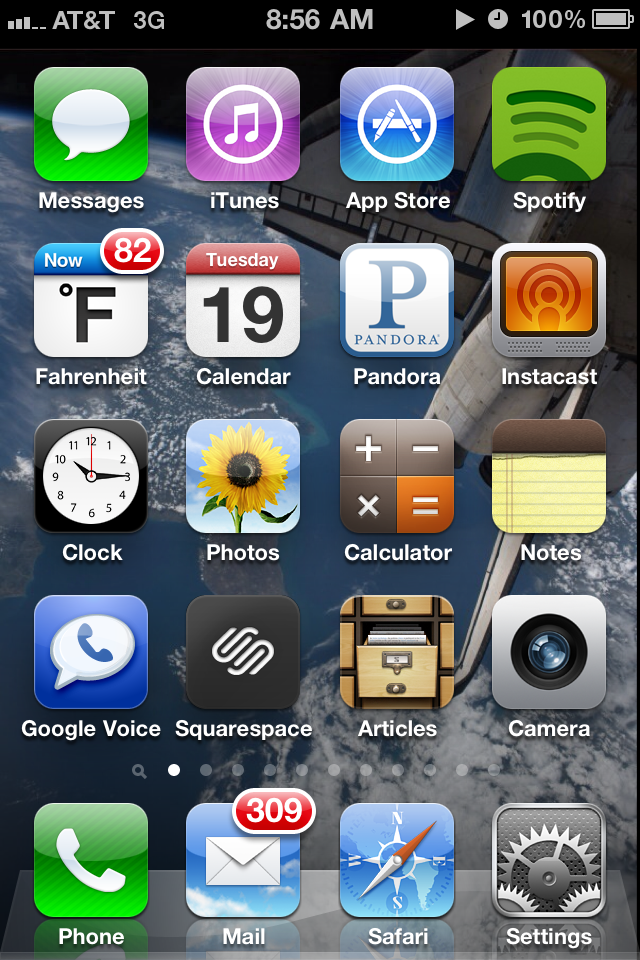Check out my iPhone home screen below. It used to be that you need to hack into your iPhone ("jailbreaking") to enable cool third party applications that were superior to the existing Apple apps. The sucess of the App store combined with a relaxing of Apple's policy has given a rise to the number of approved apps that are awesome. And guess what, Apple finally realized that it means more money for them! Remember, they get 30% of every App sale. Combine that with the fact that an (admittenly) small amount of people will buy a phone based on some of these apps, and it's a win - win for all.
Spotify - Music player and discovery engine (see my Spotify post)
Instacast - Podcast player. Features automatic downloading, favoriting, and importing from itunes
Farenheit - Updates the weather right on the home screen - can open it for more details. Yes, it's 82 degrees at 9 in the morning.
Pandora - Streaming internet radio
Google Voice - Get text transcripts of voice mails
Squarespace - The software I use to power this site. I can make and edit posts, manage comments, and view website stats
Articles - Wikipedia with an easy to use interface


